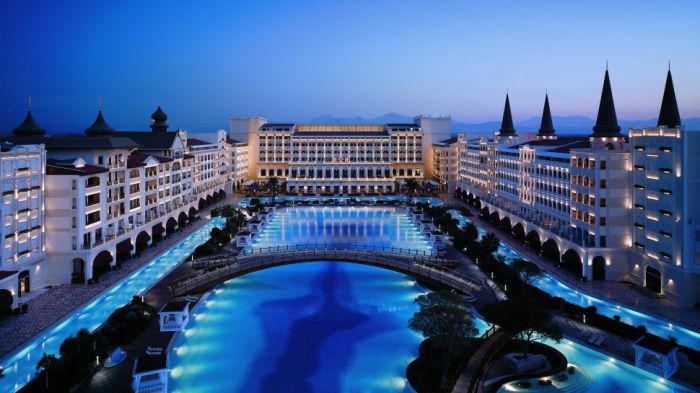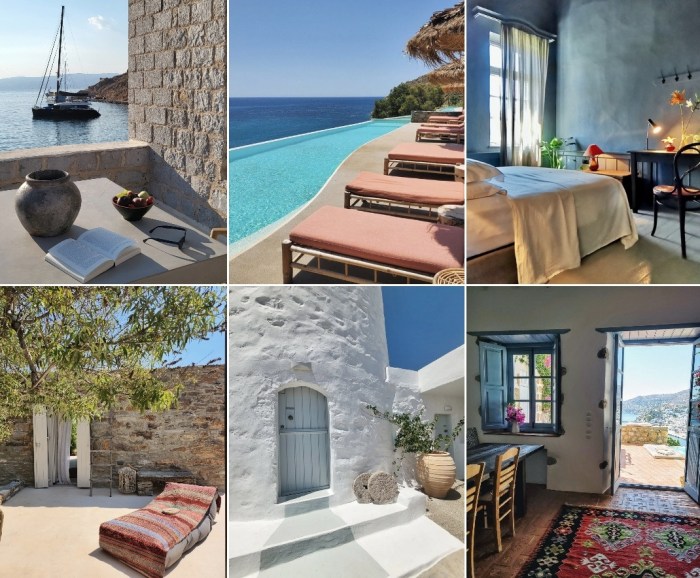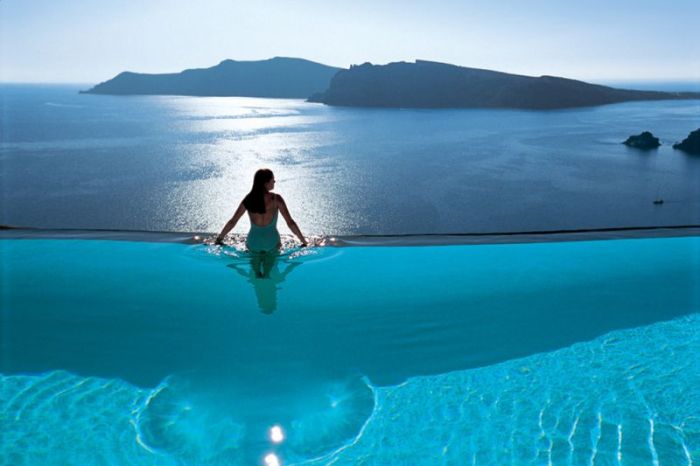The World’s Most Expensive Hotels – Are They Worth It? This question delves into the fascinating world of ultra-luxury accommodations, exploring whether the exorbitant price tags justify the experiences offered. We’ll examine the defining characteristics of these hotels, from their unparalleled amenities and exclusive locations to the intangible value of prestige and exceptional service. This exploration will consider various price points, comparing the offerings with alternative luxury travel options to ultimately determine if the investment truly delivers exceptional value.
From private butlers and Michelin-starred dining to breathtaking locations and bespoke experiences, the world’s most expensive hotels offer a level of luxury few can imagine. But beyond the opulent surroundings, the question remains: does the price reflect genuine value, or is it simply a symbol of status and exclusivity? This investigation will analyze the factors that contribute to the high cost, compare the experiences to other luxury travel options, and ultimately help you decide if these hotels are worth the considerable investment.
The Amenities and Experiences
Staying at the world’s most expensive hotels is about far more than just a bed for the night; it’s an immersion in unparalleled luxury and bespoke experiences. These establishments cater to the most discerning clientele, offering amenities and services that go beyond the typical hotel stay, creating memories that last a lifetime. The price tag reflects not just the opulence of the accommodation, but the curated experiences and personalized attention provided.
The unique selling points of these hotels are often their meticulously crafted experiences. From private butlers anticipating every need to exclusive access to renowned cultural events and Michelin-starred dining experiences, every detail is designed to exceed expectations. These hotels often partner with local artisans, chefs, and cultural institutions to provide truly authentic and unforgettable encounters. The marketing of these experiences is as sophisticated as the services themselves, focusing on the creation of personalized journeys and the promise of exclusivity and discretion.
Signature Experiences of the World’s Most Expensive Hotels
The following table compares the signature experiences offered by five of the world’s most expensive hotels. Note that prices are subject to change and may vary depending on the season and specific booking.
| Hotel Name | Signature Experience | Price (Approximate) | Description |
|---|---|---|---|
| The Burj Al Arab Jumeirah, Dubai | Royal Suite Stay with Butler Service | $20,000+ per night | Includes a dedicated butler, access to exclusive lounges, private beach access, and a personalized itinerary tailored to the guest’s preferences. The suite itself is a spectacle of opulent design, featuring a private cinema and breathtaking views. |
| The Mark Hotel, New York City | The Penthouse Suite Experience | $75,000+ per night | This expansive penthouse suite offers unparalleled views of Central Park and features a private terrace, a grand piano, and access to the hotel’s exceptional amenities, including a Michelin-starred restaurant. The experience is enhanced by the hotel’s personalized service, catering to every whim of its guests. |
| Hotel President Wilson, Geneva | Royal Penthouse Suite Stay | $80,000+ per night | Boasting stunning views of Lake Geneva and Mont Blanc, this suite features multiple bedrooms, a private gym, and a stunning terrace. Guests can enjoy personalized services, including private chef experiences and access to the hotel’s exclusive concierge services. |
| Mandarin Oriental, Barcelona | Presidential Suite with Private Yacht Excursion | $50,000+ per night | This luxurious suite offers breathtaking views of the city and the Mediterranean Sea. The experience is enhanced by a private yacht excursion along the coast, offering a unique perspective of Barcelona’s stunning coastline and a chance to enjoy fine dining onboard. |
| The Palms Casino Resort, Las Vegas | Empathy Suite Stay | $100,000+ per night | The Empathy Suite, designed by Damien Hirst, offers a truly unique and unforgettable experience. This extravagant suite includes a collection of Hirst’s artworks and offers unparalleled luxury and privacy, coupled with personalized service that caters to the guest’s every need. |
Marketing these experiences often involves high-quality photography and videography showcasing the opulence of the suites and the exclusivity of the services. Websites and brochures use evocative language, emphasizing the personalized nature of the experience and the promise of creating unforgettable memories. Social media campaigns often feature influencer collaborations and user-generated content, highlighting the unique aspects of each hotel and its signature offerings.
The focus is always on creating a sense of aspiration and exclusivity, positioning these stays as once-in-a-lifetime experiences.
Location, Location, Location
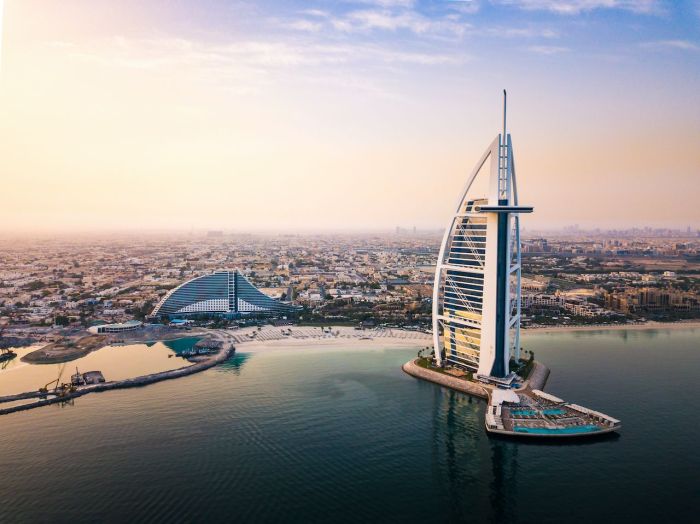
The price of a hotel room, especially at the ultra-luxury level, is significantly influenced by its location. More than just a place to stay, the location offers a unique experience, impacting the overall value proposition and justifying the often exorbitant costs. Factors such as exclusivity, accessibility, and surrounding attractions all play a crucial role in determining a hotel’s pricing strategy.The desirability of a hotel’s location directly correlates with its price.
Hotels situated in exclusive, highly sought-after areas command premium rates due to their limited availability and the prestige associated with the address. Conversely, a hotel with convenient access to major transportation hubs and popular attractions might attract higher occupancy rates, leading to higher pricing, even if the location itself isn’t inherently exclusive. The synergistic effect of location and the experience it offers is a key determinant of pricing.
Location’s Influence on Hotel Pricing
Hotels in prime city center locations, such as the Burj Al Arab Jumeirah in Dubai, benefit from proximity to major landmarks, shopping districts, and business centers. This convenience and the associated prestige contribute to their high prices. In contrast, remote island resorts like the The Brando in French Polynesia command high prices due to their exclusivity, unique natural beauty, and the logistical challenges involved in reaching them.
The luxurious isolation and unparalleled experiences offered justify the higher cost. Furthermore, hotels located within or adjacent to historical landmarks, like the Hotel de Crillon in Paris, benefit from the rich history and cultural significance of their surroundings, adding to their perceived value and consequently, their price.
Top 5 Most Expensive Hotel Locations Globally
The pricing of the most expensive hotels is inextricably linked to the desirability and exclusivity of their locations. These locations are not simply geographically advantageous; they represent a confluence of factors that drive demand and justify premium pricing.The following list presents five locations consistently associated with some of the world’s most expensive hotels, alongside the reasons for their high prices:
- Monaco: The principality of Monaco offers an unparalleled blend of luxury, exclusivity, and glamour. Its compact size, stunning coastal location, and association with wealth and prestige make it a highly desirable location for luxury hotels, resulting in exceptionally high room rates. The Monte-Carlo Bay Hotel & Resort exemplifies this, with its prime beachfront location and access to the Monte Carlo Casino.
- New York City (Specific areas like Fifth Avenue): Iconic addresses in Manhattan, particularly on Fifth Avenue, command top dollar due to their central location, proximity to major attractions, and association with high-end shopping and dining. Hotels in these areas often cater to a discerning clientele willing to pay a premium for the prestige and convenience.
- Paris (Specific areas like the 1st and 8th arrondissements): Paris, a city steeped in history and culture, boasts several highly desirable hotel locations. The 1st and 8th arrondissements, home to iconic landmarks such as the Eiffel Tower and Champs-Élysées, attract luxury hotels that leverage their prime locations to justify high prices. The Hotel Plaza Athénée exemplifies this, offering stunning views of the Eiffel Tower.
- The Maldives: The Maldives’ reputation as a tropical paradise, with its overwater bungalows and pristine beaches, attracts a high-end clientele willing to pay exorbitant prices for the exclusivity and unique experience. The high cost of maintaining and operating resorts in such remote locations also contributes to higher prices.
- Switzerland (Specific areas like St. Moritz and Zermatt): The Swiss Alps offer a unique blend of natural beauty, luxury, and exclusivity. Resorts in locations like St. Moritz and Zermatt cater to a wealthy clientele seeking winter sports and a luxurious alpine experience. The high cost of construction and maintenance in these challenging environments, coupled with the demand for these exclusive locations, contributes to exceptionally high prices.
The Value Proposition: The World’s Most Expensive Hotels – Are They Worth It?
The exorbitant price tags associated with the world’s most expensive hotels raise a critical question: is the experience truly worth the investment? To understand this, we must move beyond simply listing amenities and consider the multifaceted value proposition these hotels offer, comparing them to alternative luxury travel experiences and examining the intangible benefits that contribute to their perceived worth.The value proposition of an ultra-luxury hotel stay isn’t solely about the tangible amenities—though those are undoubtedly lavish.
Instead, it’s a complex interplay of tangible and intangible factors. While a private villa might offer comparable space and privacy, and a luxury cruise could provide curated itineraries and fine dining, the experience at a top-tier hotel often encompasses a level of personalized service, brand prestige, and curated exclusivity that is difficult to replicate elsewhere. This unique blend justifies, for some, the significant premium paid.
Alternative Luxury Travel Options and Comparisons
The choice between an expensive hotel, a private villa, or a luxury cruise hinges on individual priorities. Private villas provide unparalleled privacy and often a more bespoke experience, tailored precisely to the guest’s preferences. Luxury cruises offer curated itineraries, encompassing multiple destinations and a wide array of onboard activities. However, neither offers the same level of personalized, on-demand service often found in top hotels, nor the same concentration of high-profile clientele and brand prestige.
The value, therefore, lies in what the traveler prioritizes: personalized service, exclusive experiences, or the exploration of multiple destinations. For instance, a family might prefer a private villa for its space and flexibility, while a couple celebrating an anniversary might opt for the personalized attention and refined atmosphere of a luxury hotel. A business traveler, on the other hand, might find the convenience and networking opportunities of a prestigious hotel more valuable than the seclusion of a villa.
Intangible Aspects Contributing to Perceived Value
Beyond the physical amenities, the intangible elements significantly impact the perceived value of an expensive hotel stay. The prestige associated with a particular hotel brand—a legacy built over decades, even centuries—plays a crucial role. Staying at a hotel with a renowned history, known for its impeccable service and association with celebrities or historical figures, adds an element of exclusivity and status.
This intangible value, often difficult to quantify, is a key driver of demand. Exceptional service, often exceeding expectations through personalized attention and anticipating guest needs, further enhances the experience. The seamless integration of services, the anticipatory nature of the staff, and the personalized touches all contribute to a feeling of being truly valued and cared for, exceeding the simple provision of luxury amenities.
Brand Reputation and Historical Impact
The reputation and history of a hotel profoundly affect the guest’s perception of value. Hotels with established legacies, such as the Ritz Paris or the Peninsula Hotels, benefit from a built-in reputation for excellence. This reputation is not merely marketing; it reflects years of consistent delivery of high-quality service and experiences. Guests are not simply paying for a room; they are paying for the assurance of a flawless experience, a guarantee of quality backed by a long-standing history of impeccable service and attention to detail.
This brand recognition translates directly into perceived value, justifying the higher price point for many discerning travelers who seek this assurance of quality and exclusivity.
The Target Audience
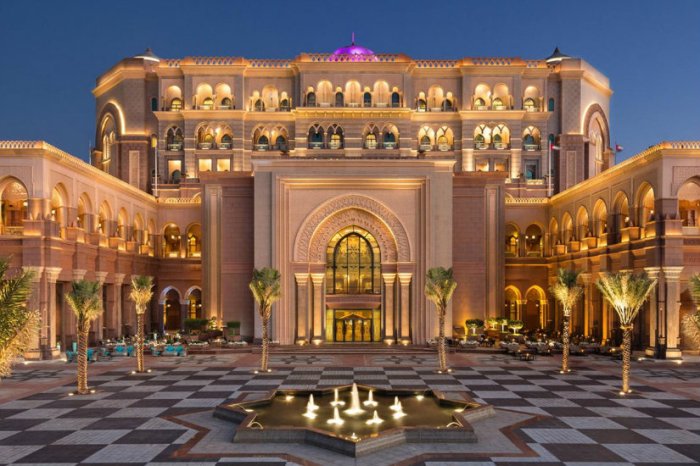
The world’s most expensive hotels cater to a highly specific clientele, differentiated not only by their financial capabilities but also by their lifestyle, travel motivations, and expectations. Understanding this target audience is crucial to comprehending the value proposition and the enduring appeal of these ultra-luxury establishments. They represent a niche market within the already exclusive realm of luxury travel.Guests choosing these hotels are typically high-net-worth individuals (HNWIs) or ultra-high-net-worth individuals (UHNWIs), possessing significant disposable income and a penchant for exceptional experiences.
Their stays are often driven by more than just accommodation; they represent a commitment to unparalleled service, exclusivity, and access to unique opportunities unavailable elsewhere.
Demographics and Psychographics, The World’s Most Expensive Hotels – Are They Worth It?
The primary demographic tends to skew towards older age groups (45-65+), with a significant portion being successful entrepreneurs, senior executives, and high-ranking government officials. However, a growing segment comprises younger, self-made millionaires who prioritize experiences over material possessions. Psychographically, these guests are discerning, sophisticated, and often value privacy and personalized service above all else. They are typically well-traveled, possessing a global perspective and an appreciation for cultural nuances.
They seek unique, memorable experiences and often utilize these hotels as a base for exploring exclusive activities and events.
Travel Motivations and Spending Habits
Travel motivations extend beyond leisure. Business trips, particularly high-stakes negotiations or important conferences, often necessitate the prestige and discretion these hotels provide. For leisure travelers, the focus is on celebrating significant milestones, such as anniversaries or birthdays, or simply indulging in a lavish escape from the pressures of daily life. Spending habits are characterized by a lack of price sensitivity.
The cost of accommodation is a secondary concern; the primary focus is on the overall experience and the intangible benefits associated with the stay. They often engage in high-value ancillary spending, such as fine dining, bespoke spa treatments, private excursions, and personal shopping experiences offered by the hotel.
Typical Guest Profile
Imagine a successful businesswoman, aged 55, who owns a thriving tech company. She travels extensively for both business and pleasure, often accompanied by her spouse. Her lifestyle is characterized by a demanding career, but she also prioritizes wellness and self-care. She appreciates bespoke experiences and personalized service, valuing privacy and discretion. Her travel patterns are global, often involving stays in multiple luxury hotels across continents, each chosen for its unique character and offerings.
She seeks hotels that offer not just comfortable accommodations but also curated experiences, access to exclusive events, and a seamless, personalized service that anticipates her every need. She is tech-savvy, but values genuine human connection and personalized attention above all else. Her attire reflects classic elegance with a modern edge, her preferences ranging from Michelin-starred dining to private yoga sessions and art gallery visits.
Concluding Remarks
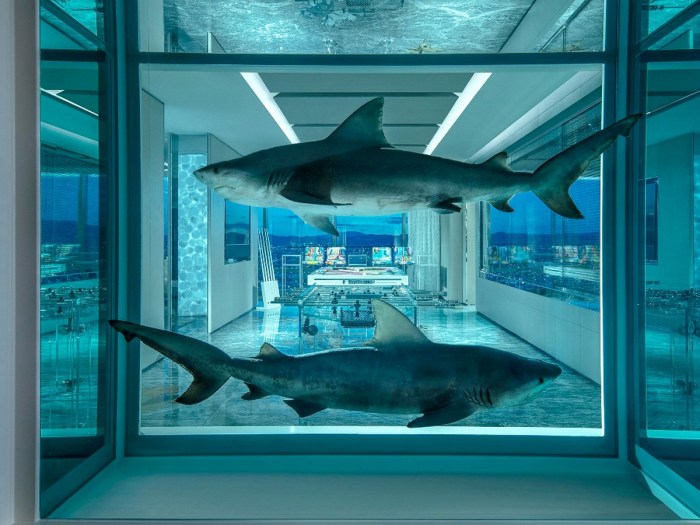
Ultimately, the question of whether the world’s most expensive hotels are “worth it” is subjective and depends heavily on individual priorities and preferences. While the price tags are undeniably high, the unparalleled amenities, exclusive experiences, and intangible value of prestige and exceptional service create a unique proposition. For discerning travelers seeking the pinnacle of luxury and a truly unforgettable experience, the investment may be well justified.
However, for those seeking more budget-friendly luxury options, alternative travel choices can offer comparable levels of comfort and enjoyment at a more accessible price point. The decision, therefore, rests on a careful consideration of individual needs and expectations.
Quick FAQs
What are some common misconceptions about staying in these hotels?
A common misconception is that only the ultra-wealthy stay in these hotels. While a significant portion of guests are high-net-worth individuals, many guests utilize special occasions, celebrations, or rewards programs to experience these properties.
Are there any hidden costs associated with staying in these hotels?
While the nightly rate is substantial, additional costs such as spa treatments, fine dining, and private excursions can significantly increase the overall expenditure. It’s crucial to review the hotel’s pricing structure and potential add-on costs before booking.
How far in advance should I book a stay at one of these hotels?
Due to high demand, booking well in advance (several months to a year or more) is highly recommended, especially during peak seasons. Availability at these prestigious establishments is often limited.
What type of clientele do these hotels typically attract?
These hotels attract a diverse clientele, including high-net-worth individuals, celebrities, business executives, and discerning travelers seeking exceptional luxury and personalized service. The common thread is a desire for an unparalleled travel experience.
Can I customize my stay at these hotels?
Many of these hotels offer highly customizable experiences. Guests can work with concierge services to tailor their stay to their specific preferences, from arranging private tours and excursions to creating personalized dining experiences.



